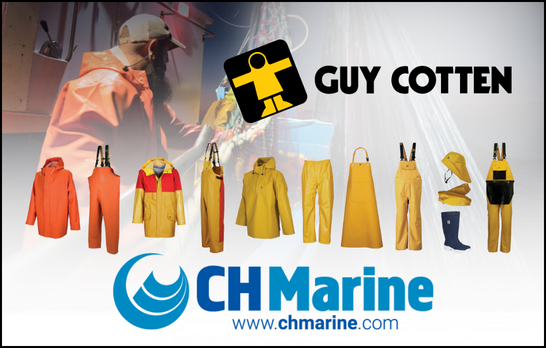By Brian Fitzgerald,
Director of External Affairs and Stakeholder Liaison Simply Blue Group
Throughout 2021, with the excellent help of our Fishery Liaison Officers, I visited fishing piers along the coast from the Aran Islands to Kilmore Quay. While there, I met some of the hardest working people in Ireland as they put to sea in some of the roughest seas in the world to earn their livelihood harvesting some of the finest food in the world for all to enjoy. Today, on foot of the triple whammy of climate, biodiversity and energy security crises, those rough seas have attracted an offshore renewable energy industry to Ireland, the likes of which has never been seen before. The economic opportunity for maritime Ireland and its coastal communities is enormous as the scale of the technology, its supply chain and its consequent route to market match the scale of Ireland’s met-ocean conditions, geostrategic location, and continental shelf to represent the renewable energy equivalent of a huge resource find that will never diminish. Arising from conversations with the fishermen on those piers, the Emerald and Western Star projects sponsored and drove a Seafarer’s Conference to explore the maritime skills and qualifications needed to optimise the opportunity from this dramatic new era for maritime Ireland. The Conference was held at the NMCI in March and demonstrated that fishing communities are worried about the future for their industry while also revealing a healthy scepticism towards offshore renewable energy developments. Nonetheless, the Conference delivered six actions for both communities and environmental interests to work towards a co-existent, prosperous, and sustainable future. Three of the recommendations from the Conference depend upon trusted and detailed communication. These recommendations comprise:
- A requirement that Ireland must build and sustain an agile maritime workforce to meet the skills needs for a zero-carbon economy.
- That the offshore renewable energy industry and Ireland’s fishing industry must work together.
- That Ireland should prioritise investment in building a supply chain to optimize local content opportunities as renewable energy developments unfold.
For Ireland to realise the opportunities from offshore renewable energy, the consenting regime and associated planning processes for developments are thorough and detailed. Importantly, within the licencing and consenting process, an offshore energy project must engage with statutory consultees. The recommendations, called “licence conditions”, from such consultees include the appointment of a fishery liaison officer (FLO) to consult with fishermen and relevant fishermen’s groups in order that appropriate actions can be taken to avoid or minimise any interactions with ongoing fishing activities in the area during survey work and investigations. This is also the practice internationally.
To conduct this required fishery liaison work, the Emerald Project appointed ‘Fishery Liaisons’ Ltd from Cork, and the Western Star Project appointed ‘Emerald Marine Environmental Consultancy’ Ltd from Kerry. It is as important to both Emerald and Western Star, the respective fishery liaison companies, and the fishing communities alike that all our communications are thorough, frequent, and trusted in order to ensure that effected fishermen and other stakeholders are fully informed of all associated activity that may impact on their activity. We achieve this by putting our values into action as both the Emerald and Western Star Projects champion safety of life at sea and a sustainable future for all throughout our dealings. Our fishery liaison officers disseminate accurate project information that is clear and concise, so that fishers can make well-informed decisions. Fishermen can expect that our fishery liaison officers guarantee clear and transparent engagement as they occupy a delicate space between two industries whereby their own fishing, maritime and environmental expertise enables understanding. Through extensive, trusted, and timely communications, understanding can be achieved towards a brighter future for Ireland’s fishing and coastal communities in healthy and sustainable co-existence with offshore renewable energy.
The milestone announcement of the appointment of Captain Robert McCabe as the Chair of Ireland’s Seafood/Offshore Renewable Energy Working Group is a timely development. It is hoped that this working group will develop guidelines for an agreed scheme for compensation to deal with fishermen and others who will be displaced by the development of offshore renewable energy projects. Through such schemes our fishermen and the foreign direct investors needed by Ireland to deliver its climate action targets and our maritime potential will be able to plan towards that sustainable future for all. In addition, it is expected that the Seafood WG will agree an arbitration process for dispute resolution. Meanwhile, should any fisherman feel unfairly treated by the systems in place nationally or with individual developers, as with all things in Ireland’s constitutional democracy, pursuit of a legal remedy through the Courts is always a fall-back option. However, as we in the offshore renewable energy industry and our associated fishery liaison officers continue to work on trusted communications with our stakeholders, we hope that Ireland’s fishing community works with us every step of the way, so that Ireland, and our fishing and coastal communities reap the full benefits of what can be described as a golden opportunity. Through our working together, the many challenges before us can be resolved towards a brighter and sustainable future for all. Once again, Ní neart go chur le chéile.
Further recommendations include:
- The offshore renewable energy industry, Ireland’s environmental network and relevant national institutions must work towards solving the biodiversity crisis in concert with the climate and energy security crises.
- Ensure that Ireland’s fishing industry is enabled to thrive sustainably as a key element of our food security.
- A cross-Government approach to this maritime based economic opportunity is essential.
To listen to the Seafarer’s Conference, click here


Recent Comments